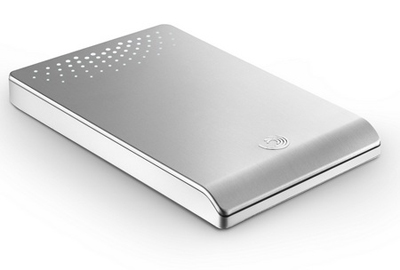
 |
How To Backup Your Computer |
IntroIn this section, we are going to consider which backup media to use, that is, where you store your backup data. In the previous section we discussed why backups were important and which data you should consider backing up. Backing up data can consume a lot of storage space so it is important to consider carefully how best to store it. There are dozens of options, so we will concentrate on the three that are of most use to home users and take a look at the advantages and disadvantages of each option. Remember, you are not restricted to one choice, you could use any combination of the media below depending on your requirements. Recordable DVD/CDThere are now affordable DVD recordable disks on the market that can store up to 8.55 gigabytes of data, making them an attractive option for smaller backup needs. Software which backs-up to DVD or CD disks is readily available and DVD writing hardware is extremely affordable. Advantages:- Very affordable, easy to store and transport disks. Disadvantages:- Limited capacity may require several manual disk swaps, may be slow to record and verify. Portable hard drives/USB flash drivesPortable hard drives are getting cheaper and cheaper, making them an attractive option to use as backup media. Readily available in very high capacities they are an ideal backup solution for the home or small office. For smaller backup needs, many users carry a USB flash drive or pen drive. These are easier to carry around but have more limited storage capacities. More expensive portable hard drive enclosures include not one but two or more physical hard drives. The second drive can be configured to automatically copy the contents of the first drive, meaning that your data is safe even if one of the drives fail. This technology is called RAID and is very useful for protecting highly important data. However, since any data stored or deleted on a RAID array will be immediatley changed on all disks in the array, it should not be considered a backup strategy on its own. Advantages:- Fast recording times, very large capacities available. Disadvantages:- Can be more expensive than DVD backups, especially for smaller backups, cannot make multiple backups for off-site storage without investing in extra drives. Consider the data on your computer, we can split it roughly into two categories: Programs - These are the things you install and run on your computer. They include word processors, web browsers, games, music players and anything and everything that runs on your computer. Data - This is information that programs work with. It includes word processor documents, spreadsheets, music and video files, digital photographs, saved game positions and anything and everything that the programs you run on your computer work with. Network backup to another PC or network enabled storageBusinesses have used the network backup model for many years, often in conjunction with tape backups. Now many home users are connecting two or more PC's to their broadband connection. In doing this they are also creating their own private network in their homes, which allows for easy sharing of computer resources such as printers, scanners and storage space. On a small network like this, backing up data from one machine to the other is usually as easy as copy and paste. Because network backup is so convenient, many vendors have started producing network-attached storage (NAS) devices. These devices are like mini-computers that plug into your network and provide additional storage space. Some NAS devices can also stream music and video to other devices in your home, such as games consoles or multimedia players. Some can even connect to a printer and allow it to be used by any computer on the same network. Many NAS devices also support RAID technology which can automatically back up one hard drive to another in real time. Advantages:- Storage capacity is only limited by hard drive space on the networked PC or NAS and can be expanded almost without limits. Backups can be fully automated, fast recording times (especially on wired networks). Disadvantages:- Requires investment in a second PC or NAS device which must be turned on at the same time as the first PC. Performance on the second PC may be degraded while backups take place, it is not usually convenient to securely store or transport a second PC or NAS. In the next section, we will explore some of the software solutions available for your Windows PC. |



|